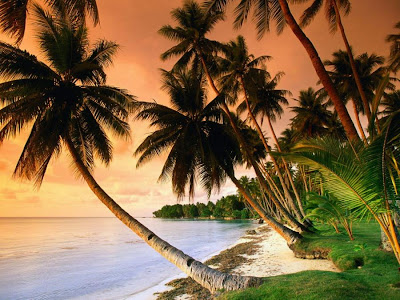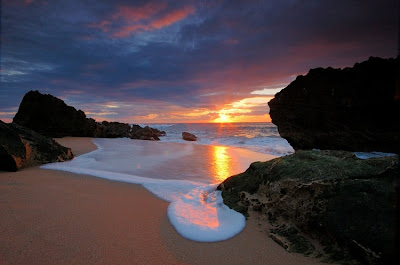These quick tips are not essential to every landscape picture you take, but bearing in mind and apply them wisely, will improve your picture taken.
- A foreground object will help to frame the scene and add a look of three-dimensionality.
- Frame the scene so that it contains a point of interest - a subject that attracts the eye of the viewer into the picture.
- Placing the focus outside the center, according to the third party rule, will create a harmonious composition.
- Put the horizon a third of the way down from the top or bottom of the frame is generally much better than having it in the middle of the stage.

- The scale can often be important to the understanding of a landscape, and can be achieved by including an object of known size of the stage. People, animals or other recognizable objects that would naturally belong in the scene are suitable for showing the scale.
- The lighting quality is perhaps the most influential attribute of a successful landscape. Waiting for interesting lighting is moody, dramatic or broadcast reports usually in a memorable photograph.
- Ensure that the flash is disabled when shooting landscapes, unless you need it to brighten up a foreground object. Flash in a dusty arena, fog May cause outbreaks by reflecting off the moisture droplets or dust particles.
- Use a tripod to ensure sharp, especially in low light conditions.
- At the very low light, make sure you select a faster film speed or ISO setting of a high resolution digital camera that will allow the proper exposure and good depth of field.
- Watch for items unsightly or unnatural, such as overhead wires, vents, poles and garbage, especially in the foreground. If you can not move easily between them, you reposition a camera angle that eliminates the frame.

- Do not let the weather stop you from catching an attractive landscape. Rain can add a degree of gentleness and quiet scene. The weather was overcast, make sure your scene is a color space to counter the global lighting dim.
- Do not let the dialing rules in mind when developing a scene. Lines, in particular, can be an important factor to a landscape interesting.
- Landscape photography is often more horizontal than vertical, it is presenting the opportunity to make a panorama. If you are faced with a broad view and your camera has a panorama mode, it's time to select it. After cropping can achieve similar objectives.
- When the wind blows or the water is in motion - waves, waterfalls, stream Tumbling - capturing movement using a slow shutter speed to create blur can add great interest to a landscape. When you choose a slow shutter speed, make sure to maintain proper exposure also adjusted appropriately by opening your camera. Many cameras will automatically take you to Shutter Priority mode.









